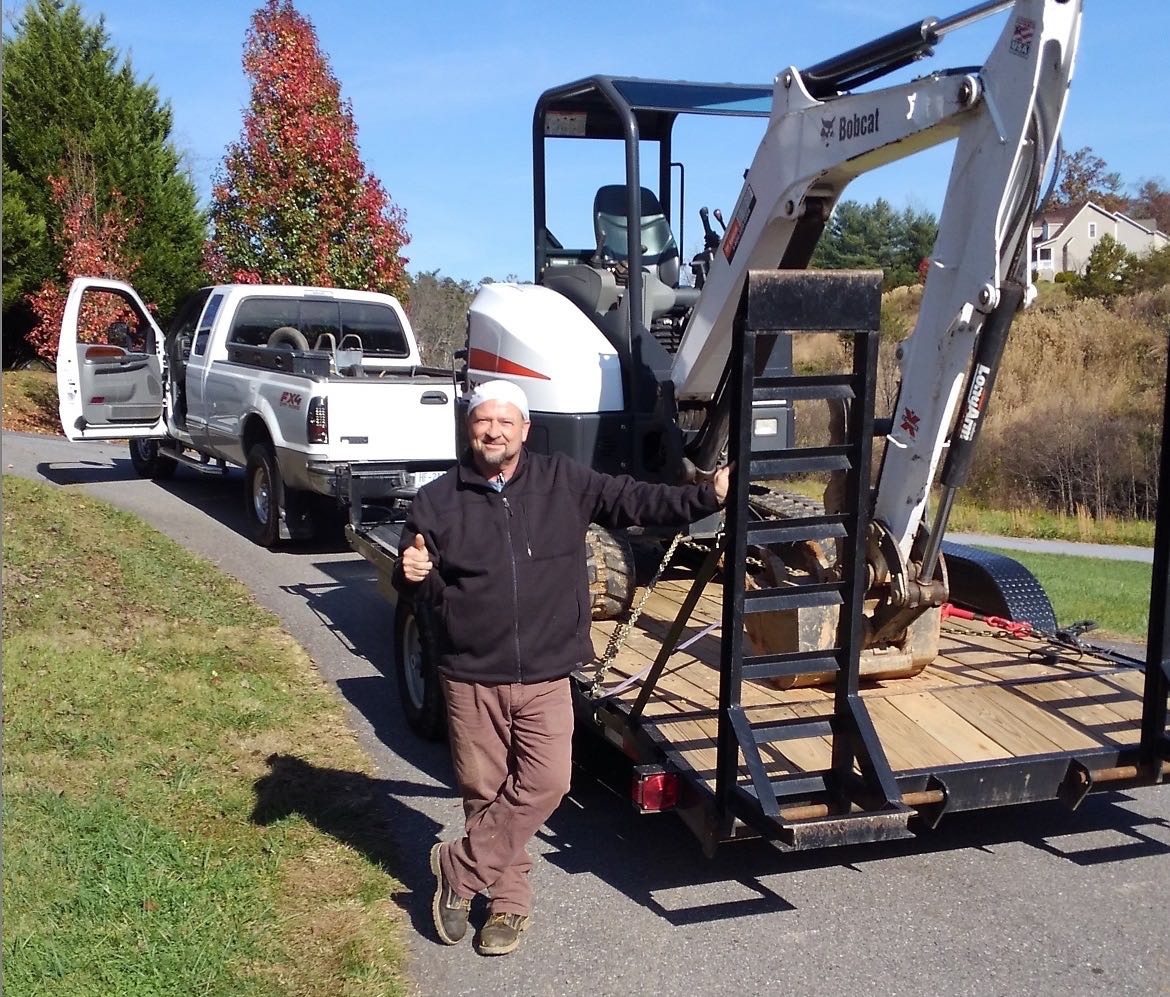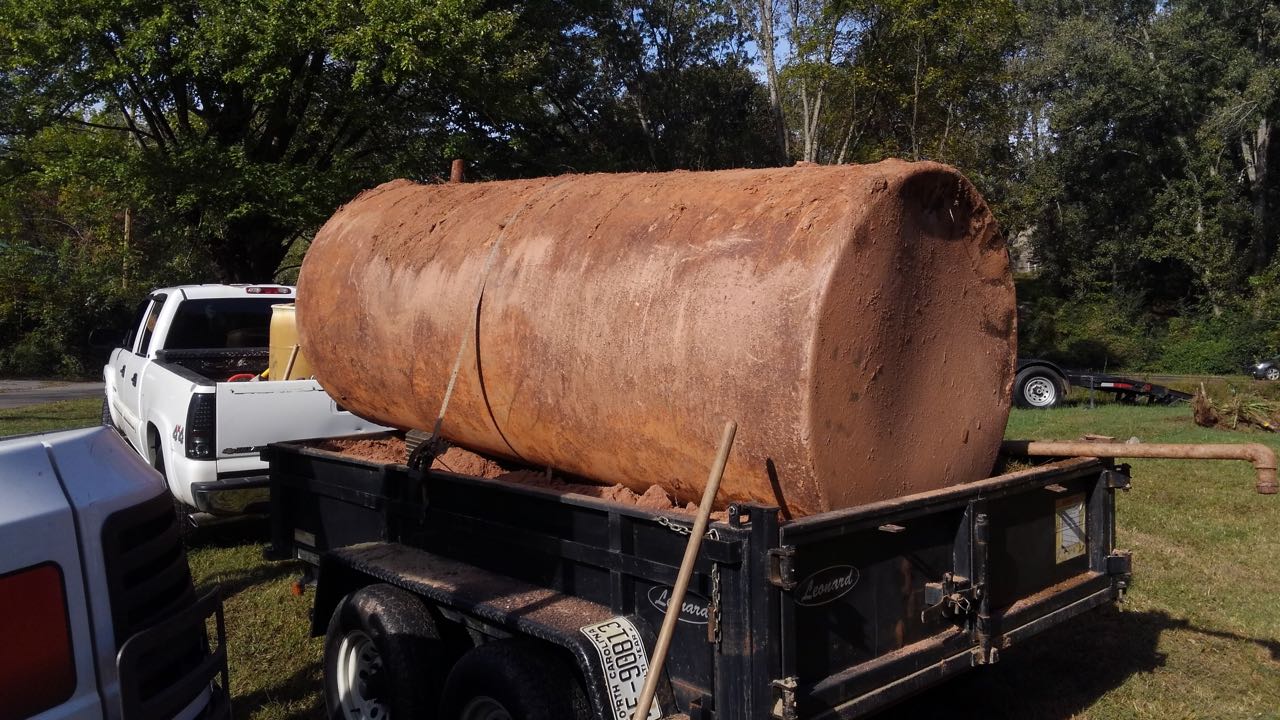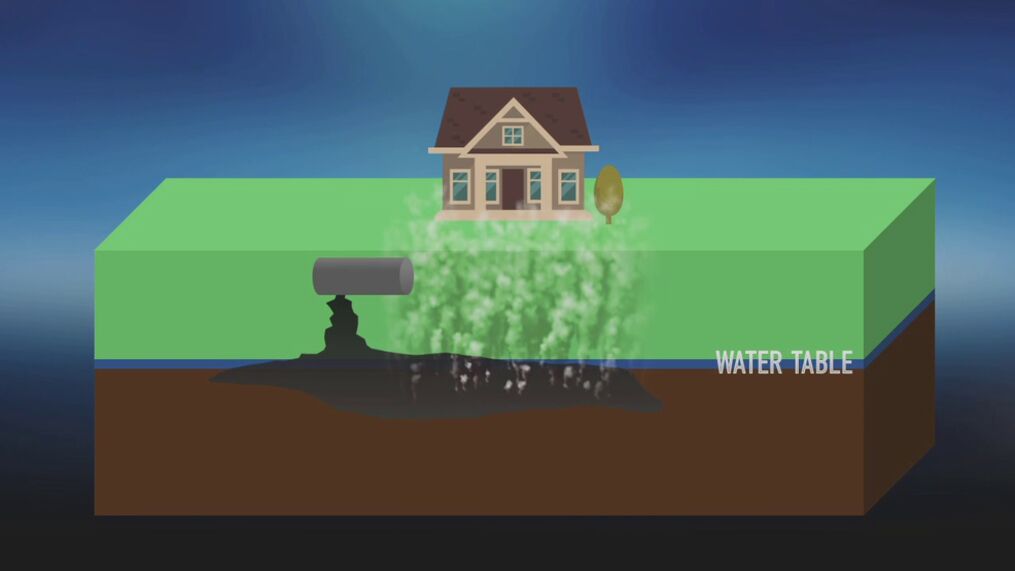Oil Tanks Asheville
January 2006 I started working in the petroleum field and after four years with a commercial service company I decided to launch out on my own and exclusively focus on residential heating oil tank concerns. A strong commitment to excellent service combined with hard work and hustle has taken me from a jeep with one small trailer and rented excavator to now with 2 service trucks multi trailers and my own bobcat. I have had the same two helpers, Pete and Brandon since 2017. It has been a great privilege to be of service to thousands of customers over the years and a large percentage of my jobs are repeats and referrals as well as from a strong network among real estate groups, heating and air companies, house flip contractors, and local heating oil suppliers.
My experience over the years has given me great confidence to address just about any situation with an oil tank, including excavating tanks that were under decks concrete asphalt and even one that was under an addition that required cutting through the living room floor.
Kevin Durden Owner

MY EXPERIENCE WITH BURIED OIL TANKS:
A buried tank will be on the radar when a property is listed for sale as many prospect buyers or their mortgage source will request soil testing to be performed. If possible it is very prudent to remove the tank before listing. Even the NCDEQ highly recommends and prefers a tank to be removed but also gives the option to abandon it in place by sand fill method. It is highly recommended to have the soil tested before filling a tank with sand. Homeowners insurance companies are now taking issue with buried tanks with some even refusing to write a policy until it is removed
Buried tanks maintain integrity about 35 to 50 years before a compromise from rust occurs. A property owner should be very concerned about a tank that’s been in the ground beyond 50 years. 10% of the tanks are removed show some evidence of soil contamination and a few times a year I see an extreme situation that requires a formal cleanup. Soil remediation jobs typically cost $4,000 to $10,000. Although I do not typically handle contaminated soil or do formal cleanups, I do have a network of environmental firms that I work with and refer to.
I do my best to keep my price structure competitive in the marketplace and, within reason, will match or beat a typical quote. It goes without saying that anyone without proper liability insurance for oil tank work should not be hired. Sometimes a ‘Bubble with a Backhoe’ can be found to address an oil tank for less but I am certainly well under what most of the local environmental service groups are charging folks.


